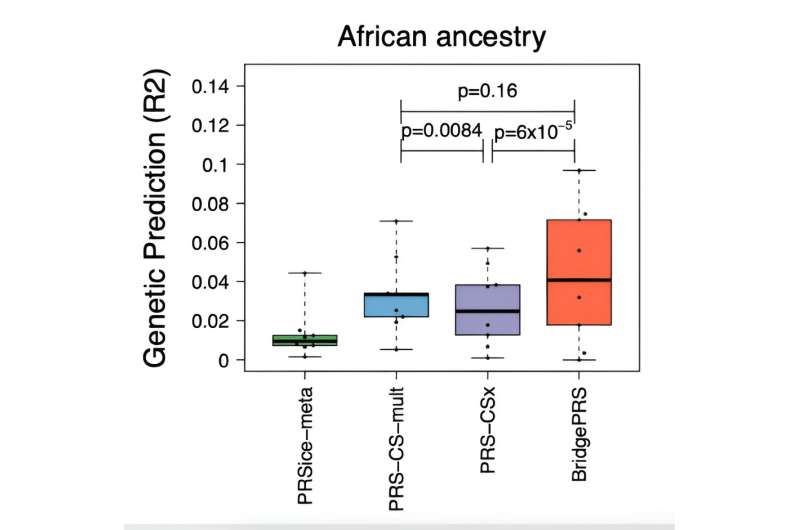
A team of scientists from Icahn School of Medicine at Mount Sinai has developed a groundbreaking statistical technique, “BridgePRS,” to enhance disease prediction in people of non-European ancestry, particularly those of African descent. This development represents a substantial step towards reducing health care inequities and a future of more personalized and precise medical interventions based on genetic information. Details of their work were published in Nature Genetics on Wednesday, December 20.
Current polygenic risk scores (PRS), essential tools for predicting disease risk encoded in our DNA, are predominantly based on genetic data from individuals of European ancestry. This bias makes them less accurate for people of African or Asian ancestry, exacerbating health care inequity among different ethnic groups.
The researchers embarked on this study to improve disease prediction from genetics in non-European individuals. A key goal of personalized medicine is disease prevention, yet current PRS are weak predictors, especially in non-European populations.
“While we need more genetic data from diverse ancestries, our method combines existing data to help maximize disease prediction across all people,” explained Clive Hoggart, Ph.D., Assistant Professor of Genetics and Genomic Sciences and lead author of the paper. “The biology causing diseases is remarkably similar across ancestries, enabling this advancement.”
“We hope that our method opens up scientific investigation of disease risk in diverse populations worldwide,” stated Paul O’Reilly, Ph.D., Associate Professor of Genetics and Genomic Sciences and senior author. “Disease prevalence and the importance of different biological pathways can vary globally. Understanding these differences is crucial for advancing disease prediction and treatment.”
The field of optimizing disease prediction through PRS Is highly competitive, fostering rapid advancements. Dr. O’Reilly notes, “Our BridgePRS method is particularly promising for predicting disease in individuals of African ancestry, a group with rich genetic diversity that can offer novel insights into human diseases.”
While recognizing the potential of genetics and DNA in predicting future disease and the role of PRS in precision medicine, it’s vital to understand that the biology causing diseases does not differ significantly across ancestry groups or races.
The paper is titled “BridgePRS leverages shared genetic effects across ancestries to increase polygenic risk score portability.”
The remaining authors, all with Icahn Mount Sinai except where indicated, are Shing Wan Choi, Ph.D. (Regeneron Genetics Center), Judit García-González, Ph.D., Tade Souaiaia, Ph.D. (Suny Downstate Health Sciences), and Michael Preuss, Ph.D.
More information:
BridgePRS leverages shared genetic effects across ancestries to increase polygenic risk score portability, Nature Genetics (2023). DOI: 10.1038/s41588-023-01583-9 , www.nature.com/articles/s41588-023-01583-9
Citation:
Researchers develop novel method to improve disease prediction across diverse ancestries (2023, December 20)
retrieved 20 December 2023
from https://medicalxpress.com/news/2023-12-method-disease-diverse-ancestries.html
This document is subject to copyright. Apart from any fair dealing for the purpose of private study or research, no
part may be reproduced without the written permission. The content is provided for information purposes only.


